Anonymous vs Confidential Surveys: Difference and When to Use Each
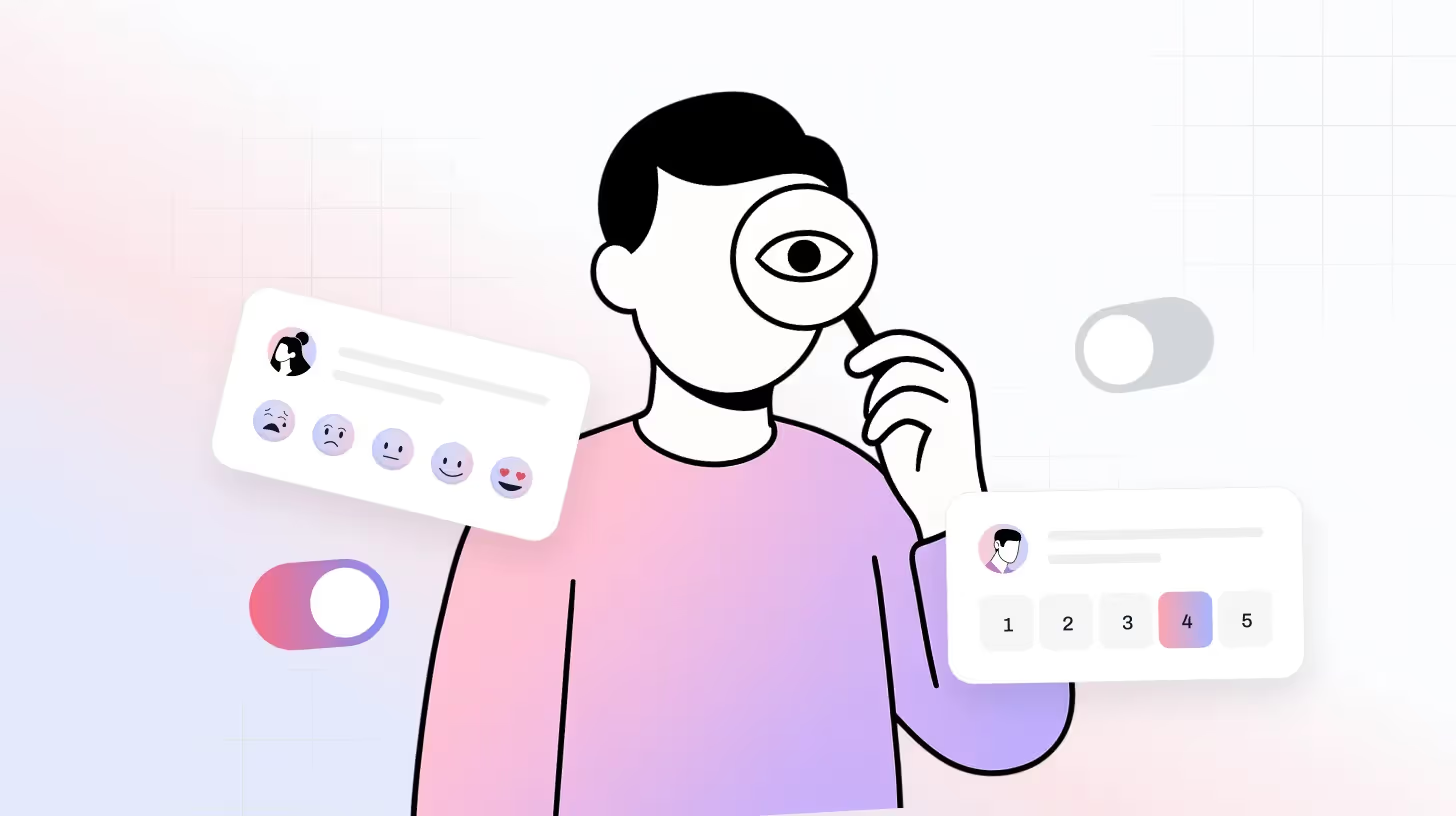
Picture this: an employee has something important to say about their workplace culture, but they hesitate. Will their manager find out? Could it affect their next performance review? Situations like this highlight why the way you design surveys matters just as much as the questions you ask.
That’s where the terms anonymous and confidential come in. While they’re often used interchangeably, they’re not the same thing. Anonymous surveys erase all personal identifiers, allowing people to speak with complete freedom. Confidential surveys, meanwhile, do collect some identifying details but keep them safeguarded, ensuring responses can’t be tied back to individuals publicly.
Both approaches build trust, but in different ways. Understanding which to use and when can transform hesitant whispers into honest insights that drive real change.
In this blog, we’ll explore the differences between anonymous vs confidential surveys, their unique benefits, and how to choose the right one for your next feedback initiative.
TL;DR: Anonymous vs Confidential Surveys
- Anonymous surveys: No identifiers collected. Great for sensitive topics (e.g., harassment, culture, mental health). Builds trust and encourages honesty.
- Confidential surveys: Collect identifiers (such as role or email) but keep them private. Enables segmentation, trend tracking, and targeted action.
- Key difference: Anonymous = total privacy, no follow-up. Confidential = privacy with context and deeper analysis.
- Best use: Choose anonymous for one-time, sensitive feedback. Use confidential for ongoing engagement and insights tied to groups.
- Pro tip: Be transparent. Always explain whether your survey is anonymous or confidential to build trust.
What is an Anonymous Survey?
An anonymous survey is one where no identifying information is collected, such as names, emails, employee IDs, or anything that could trace answers back to a specific person. It’s like dropping your opinion into a box with no signature.
Because there’s zero risk of being identified, respondents tend to be more open, candid, and even brutally honest. This makes anonymous surveys especially useful for sensitive topics like workplace culture, harassment, ethics, or mental health.
Example: An employee satisfaction survey that asks, “Do you feel comfortable speaking up about issues at work?” without collecting any personal details.
When people know their identity is fully hidden, they’re more likely to share the truth, giving you raw, unfiltered insights.
Read - Anonymous Surveys: A Complete Guide to Honest Feedback in 2025
What is a Confidential Survey?
A confidential survey collects some personal information, such as an email address, job role, or customer ID, but that data is kept strictly private and never shared with others in a way that exposes the individual. Instead, responses are reported in aggregate (grouped data), so no single answer can be tied back to one person.
This approach balances privacy with follow-up. Unlike an anonymous survey, a confidential survey allows you to reach back out if clarification is needed, while still protecting the respondent’s identity.
Example: A performance review survey where HR can see who submitted the response, but only shares the summarized results with managers.
Confidential surveys build trust while still allowing organizations to dig deeper, identify patterns, and address individual concerns when necessary.
Anonymous vs Confidential Surveys: Key Differences
Benefits of Anonymous Surveys
Think of an anonymous survey as a safe space where people can finally say what’s really on their mind. No names, no emails, no tracking, just pure, unfiltered honesty.
Here’s why anonymous surveys matter:
- Honest feedback, without hesitation: People share the truth when they know their identity is hidden.
- Safer space for tough topics: Issues like workplace culture, bullying, or mental health can be raised without fear.
- Higher participation: More employees, customers, or students are likely to respond when privacy is guaranteed.
- Trust-building tool :Shows your audience you respect their privacy and value their voice.
- Reveals the “unsaid”: Surfaces problems people would never mention in a meeting or to a manager.

Benefits of Confidential Surveys
Unlike anonymous surveys, a confidential survey collects some personal details but keeps them private and protected. This balance gives you deeper insights while still protecting respondents’ trust.
Here’s why confidential surveys matter:
- Adds context to feedback: Responses can be grouped by team, role, or demographics for a clearer picture.
- Enables follow-up: You can reach back to clarify or dig deeper without exposing the individual.
- Smarter action planning: Makes it easier to target solutions to the right group of people.
- Tracks change over time: Lets you measure how specific teams or customer groups evolve.
- Connects to business impact: Links feedback to key outcomes like retention, productivity, or customer loyalty.
Anonymous vs. confidential surveys: which is best?
The decision to use an anonymous or confidential survey depends on what you’re trying to learn and how you plan to use the results. Each format has strengths and limitations, and the best fit will come down to your objectives.
1. Number of Questions
If your survey is short and focused, a confidential format tends to add more value. Because responses can be linked to an individual’s profile (without exposing their identity), you can connect the new insights to past data for richer analysis.
With anonymous surveys, insights are harder to expand on. Unless you include multiple related questions, a single response won’t provide enough context. This often means longer surveys are required to capture all the details you need, which can feel burdensome for participants.
2. Tracking Over Time vs. Single Snapshots
When the goal is to compare results across different time periods or identify trends, confidential surveys are the stronger option. The ability to reference earlier results allows you to see how attitudes evolve and which initiatives are making an impact.
If you only want a “moment in time” view, anonymous surveys are simpler. They give you a clear snapshot without requiring historical context or record-matching.
3. Depth of Analysis
For broad, organization-level insights such as company-wide satisfaction or department-level sentiment, anonymous surveys can work effectively.
But if you want to slice results by specific groups or demographics, a confidential approach is necessary. It allows you to compare sub-groups while still protecting individual responses.
4. Building Trust
Ultimately, the level of trust within your organization also influences the choice. Anonymous surveys may provide stronger reassurance, since employees know their input cannot be traced back to them.
That said, confidential surveys can inspire just as much trust if you clearly explain how the data is stored, who can access it, and how privacy is guaranteed. Transparency is what makes employees feel secure in either case.
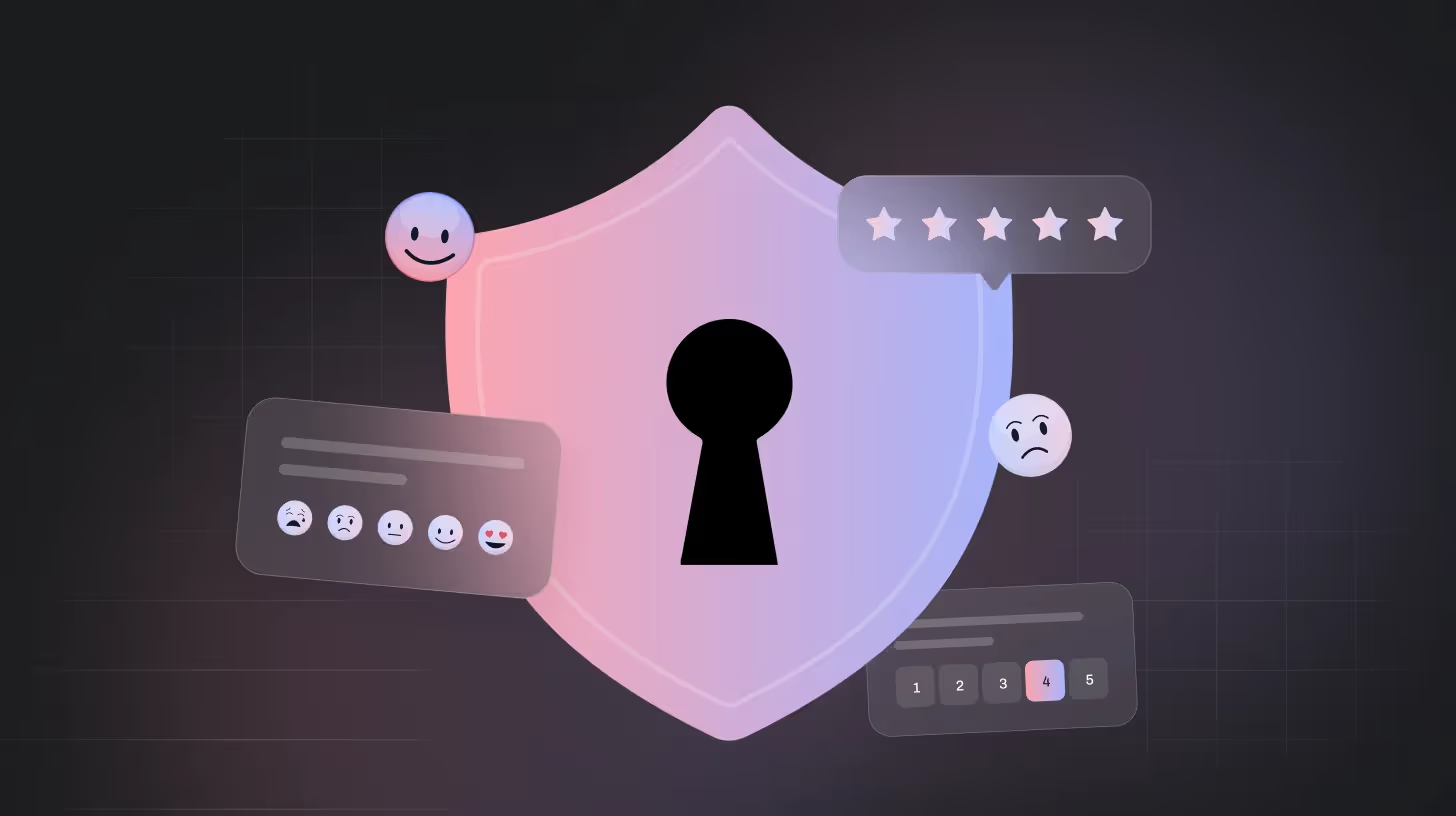
Which Approach Delivers More Value?
Both methods have their place, but confidential surveys usually deliver greater long-term benefits. They enable trend analysis, connect with existing HR data, and still support high-level reporting.
Anonymous surveys, by contrast, are best suited for short-term needs, such as gauging sentiment on sensitive topics or capturing broad, one-off feedback. Because they start with no historical link, the insights are limited to that single round of data collection.
Recommendation: Choose confidential surveys when you want actionable, ongoing insights that inform strategy. Use anonymous surveys when your goal is to encourage maximum honesty on sensitive issues or when you only need a quick snapshot of sentiment.
Read - Anonymous Employee Surveys: Questions, Examples, and Best Practices
Can a Survey Be Both Anonymous and Confidential?
Short answer: No, a survey can’t be both anonymous and confidential at the same time.
Here’s why:
- An anonymous survey means no identifying information is collected at all. There’s no way to know who said what.
- A confidential survey means some personal data is collected, but it’s protected and only reported in aggregate.
Since these two approaches are opposites, a survey can’t be fully anonymous and confidential at once. However, what some organizations do is offer a blend of both:
- The survey is anonymous to managers (they never see who responded).
- But it’s confidential to administrators or HR (who may collect emails or IDs, but promise not to disclose them).
In practice, it’s about setting clear expectations. If you tell respondents their answers are “anonymous,” make sure you’re not tracking IPs, emails, or device IDs. If it’s “confidential,” explain exactly how their identity will be protected. Transparency is what builds trust.
Create Anonymous and Confidential Surveys with TheySaid
TheySaid makes it easy for organizations to design and run both anonymous and confidential surveys, all on one platform. Whether you need a safe space for employees to share candid feedback or a structured way to track insights over time, TheySaid gives you the flexibility to choose the right format.
Anonymous Surveys with TheySaid
- Collect open, candid responses without linking them to employee records.
- Build trust by assuring staff their input cannot be traced back to them.
- Use for sensitive topics, one-time snapshots, or when you want aggregate insights only.
Confidential Surveys with TheySaid
- Link survey responses to employee profiles while still protecting individual identities.
- Track changes over time and connect new feedback with past data for deeper analysis.
- Segment results by department, role, or location without compromising confidentiality.
Create anonymous and confidential surveys with TheySaid and get insights people actually trust. Sign up now!
FAQs
1. How do I decide between an anonymous and a confidential survey?
Use an anonymous survey for sensitive topics where privacy drives honesty, and a confidential survey when you need deeper insights tied to groups or demographics.
2. Are there legal implications for breaching confidentiality or anonymity?
Yes. Breaking survey confidentiality or anonymity can violate privacy laws like GDPR or HIPAA and damage trust with respondents.
3. Can respondents tell if a survey is truly anonymous?
Not always. If you collect identifiers like emails or IPs, it’s confidential, not anonymous—so always explain clearly which type it is.
4. Which type of survey gets higher response rates?
Anonymous surveys often get higher participation on sensitive issues, while confidential surveys perform well for engagement or customer feedback.
5. Can survey tools accidentally break anonymity?
Yes. Some platforms track IPs or metadata, so always adjust settings to ensure your anonymous survey stays truly anonymous.





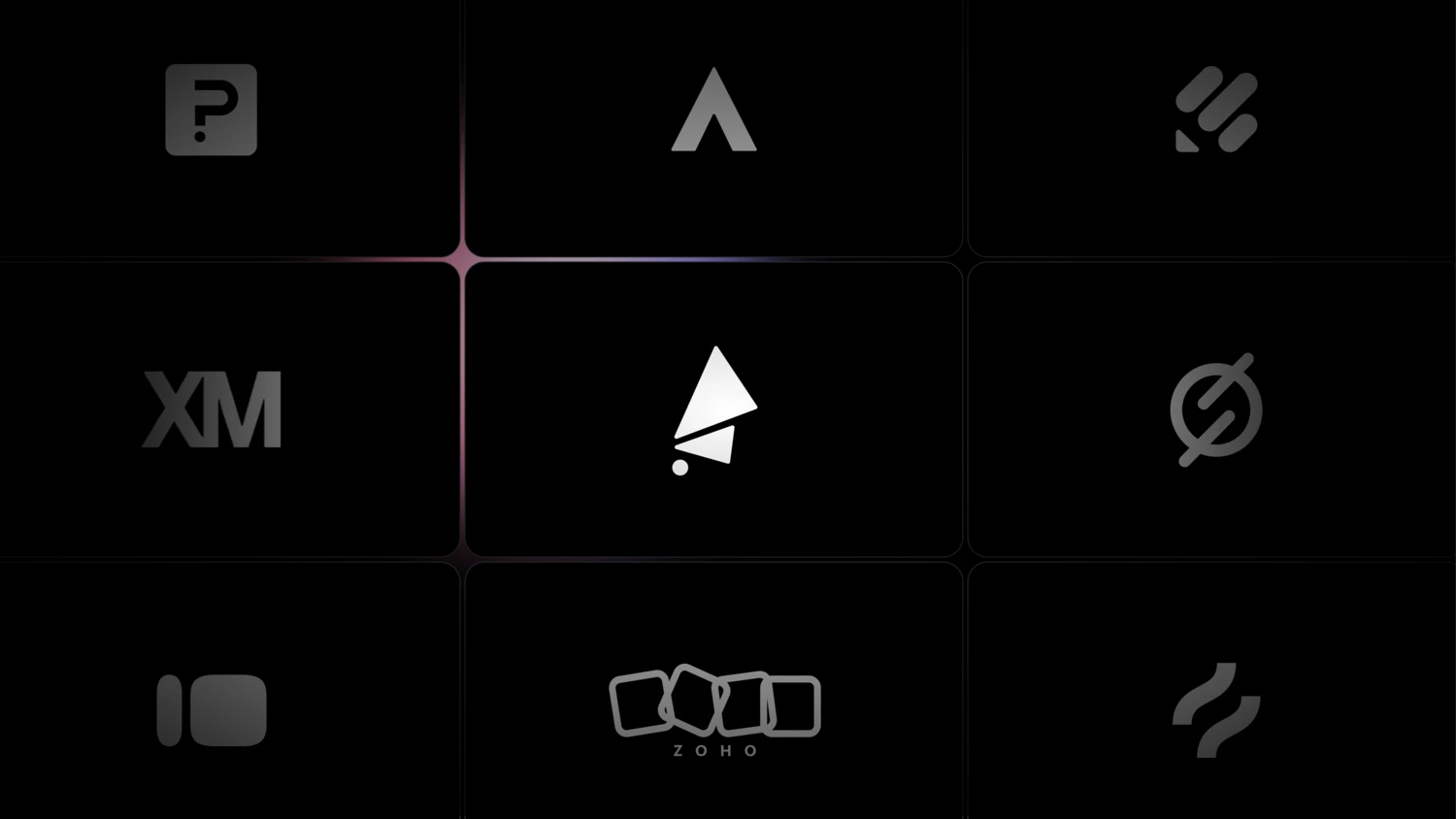
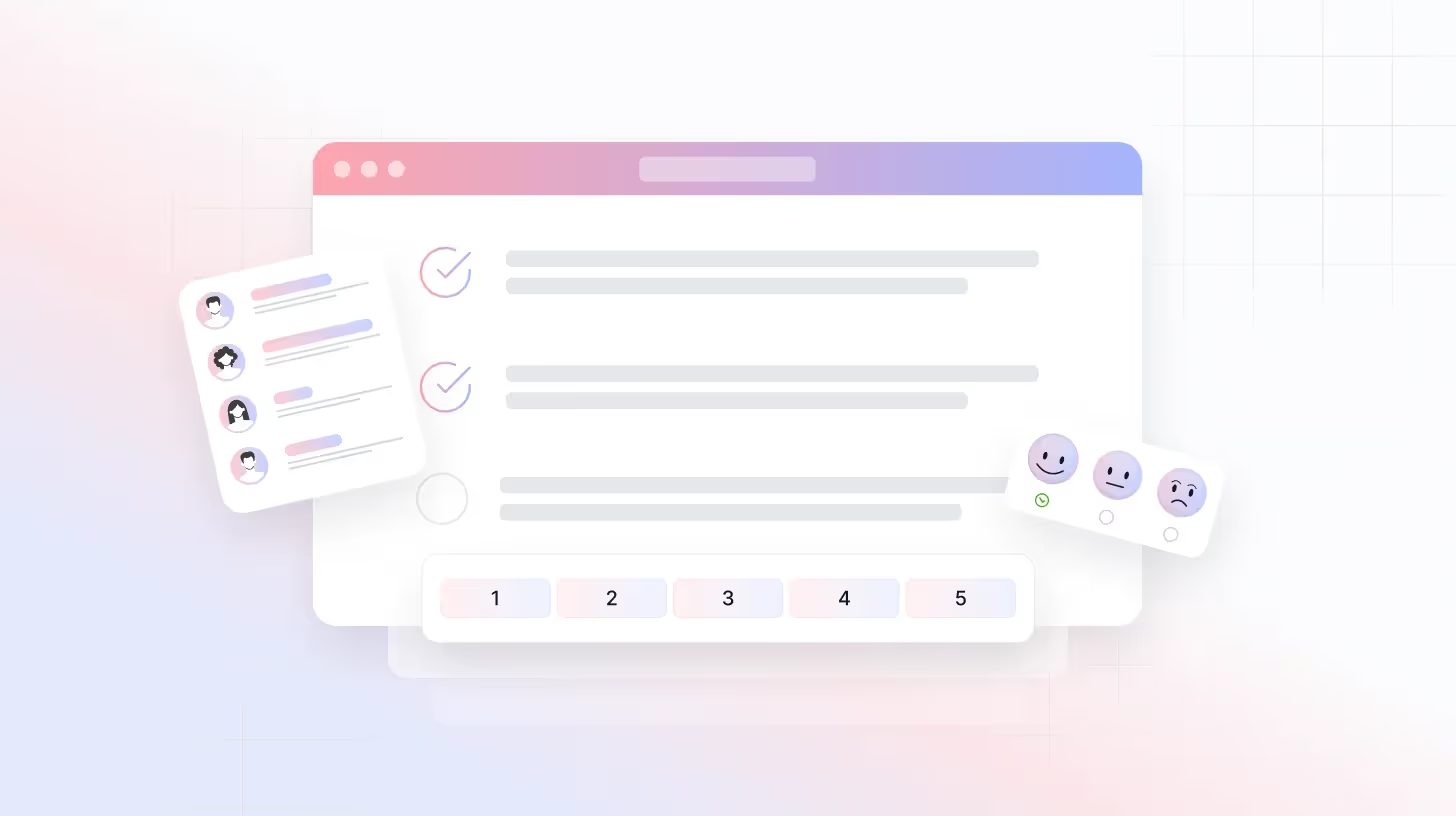
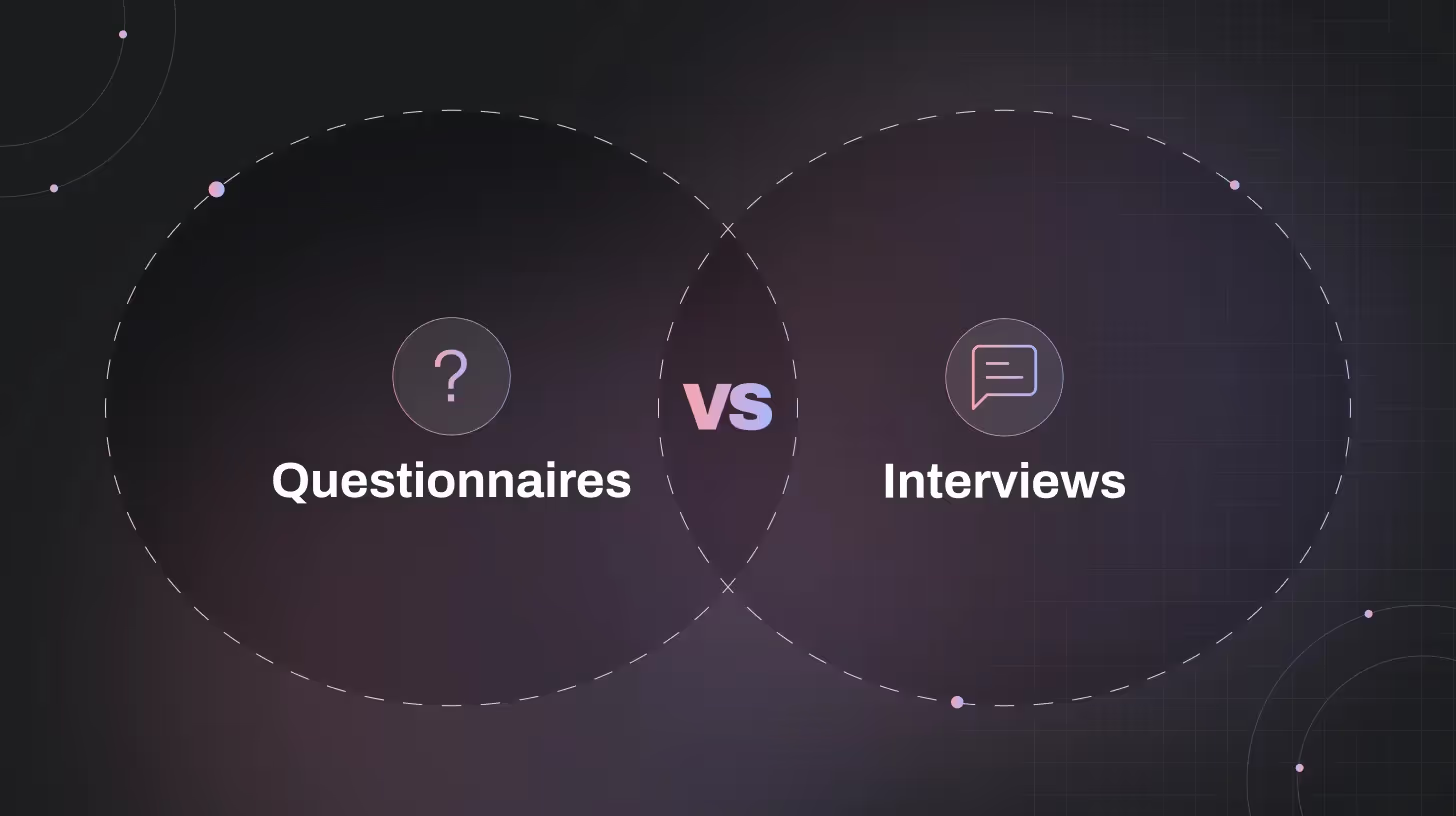






.svg)